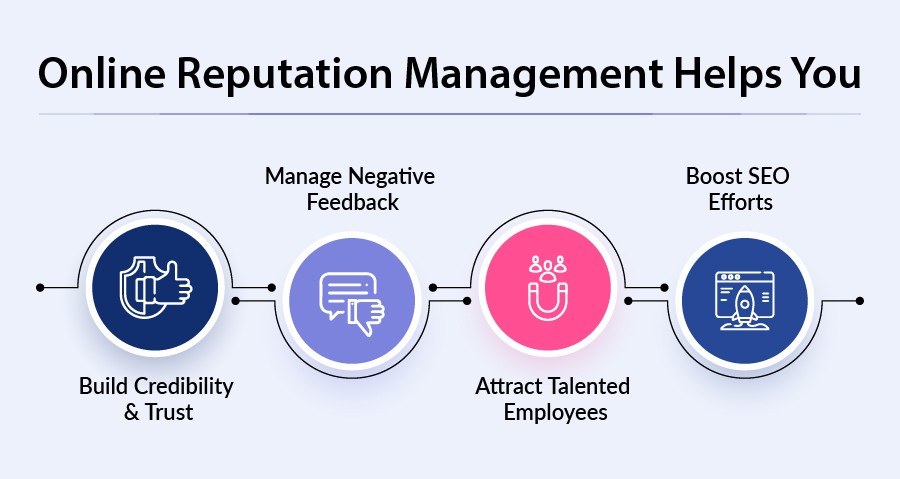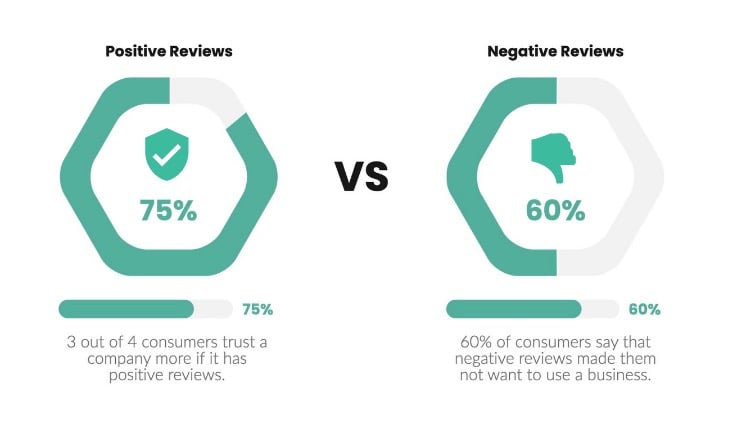Discover the secrets to mastering online reputation management and taking control of your brand’s image in the digital world.
 Image courtesy of Pixabay via Pexels
Image courtesy of Pixabay via Pexels
Table of Contents
- Understanding ORM
- Tools and Strategies for ORM
- Case Studies
- Maintaining a Positive Online Reputation
Online Reputation Management (ORM) is a critical aspect of brand and individual identity in today’s digital landscape. With the prevalence of online reviews, social media, and search engine results, maintaining a positive online reputation has never been more important. In this comprehensive guide, we will delve into the world of ORM, exploring its definition, importance, tools, strategies, and best practices for success.
Online reputation management (ORM) refers to the practice of proactively monitoring, managing and improving a person’s or company’s online reputation to present the most positive image possible.
Some key things to know about online reputation management:
– It involves monitoring online mentions and reviews across search engines, news sites, review websites, social networks and blogs.
– Tools and software help track keywords and sentiments to surface reputational threats.
– Remedial or reactive work resolves issues by getting harmful content modified or removed.
– Proactive ORM focuses on pushing down negative items with optimized positive content and direct counter-messaging.
– Establishing a consistent online presence with social profiles that showcase expertise builds credibility over time.
– Content marketing strategies highlight thought leadership, community efforts, and transparency.
– Reviews are directed to viral advocates who provide authentic and favorable testimonials.
Overall, online reputation management aims to showcase an individual or brand’s best attributes at the forefront of what people find online while minimizing negativity, false claims and unfair criticism through persistent multi-channel efforts. A strong online image directly impacts revenue and relationships.
![Why Your Company's Reputation Matters [Infographic] | WebFX](https://www.webfx.com/wp-content/uploads/2021/10/05-rep-management-impacts-sales.png)
Understanding ORM
ORM encompasses the processes of monitoring, responding to, and influencing the online reputation of a business or individual. This includes managing online reviews, social media mentions, and search engine results to ensure a positive perception among target audiences.
Elevate Your Brand with Online Reputation Management
Stay informed with exclusive tips and strategies. Subscribe now!
Positive reviews and content can enhance credibility, trust, and visibility, leading to increased customer loyalty and revenue. Conversely, negative reviews can damage reputation, deter potential customers, and harm brand reputation. Effective ORM strategies aim to mitigate negative feedback and highlight positive aspects of a brand or individual.
Tools and Strategies for ORM
There are various tools and platforms available to help businesses and individuals manage their online reputation effectively. These range from social media monitoring tools to online review management platforms.
When it comes to responding to online reviews and comments, it is crucial to address feedback promptly, professionally, and empathetically. Acknowledge the feedback, offer solutions or apologies where necessary, and demonstrate a willingness to listen and address concerns.
In addition to reactive strategies, proactive measures such as Search Engine Optimization (SEO) and content marketing play a significant role in building a positive online reputation. By creating high-quality, engaging content and optimizing it for search engines, businesses and individuals can enhance their online visibility and credibility.
Check out this guide on mastering the art of online reputation management and take control of your digital persona today. [insert link] #onlinereputation #success #guide
Case Studies
Real-life examples provide valuable insights into successful ORM strategies. One such example is a small restaurant that effectively managed a negative review on a popular review platform. The restaurant responded promptly, addressing the customer’s concerns and offering a complimentary meal to make amends. This proactive approach demonstrated the restaurant’s commitment to customer satisfaction and turned a negative experience into a positive one.
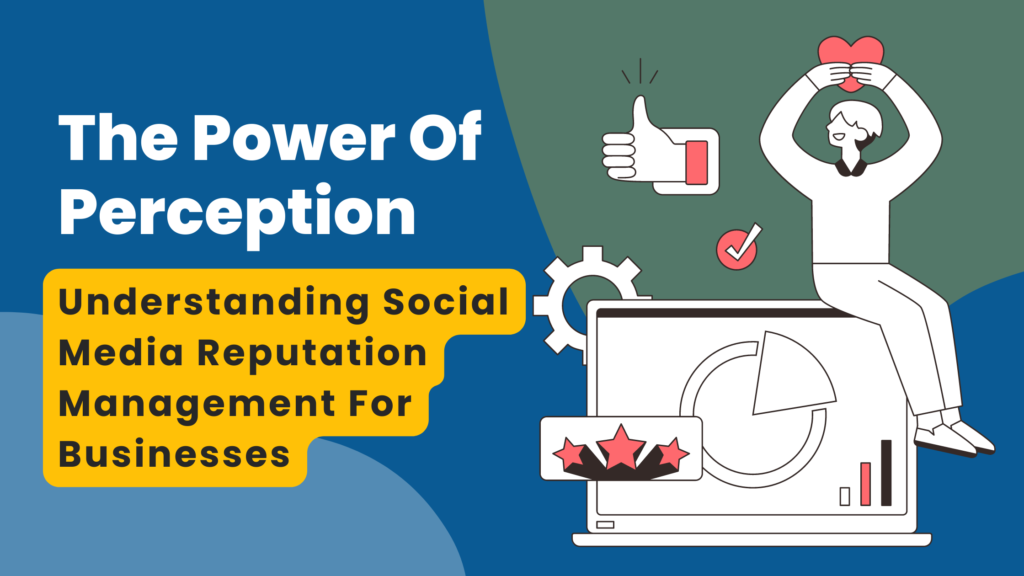 Image courtesy of konnectinsights.com via Google Images
Image courtesy of konnectinsights.com via Google Images
Another example is a well-known influencer who leveraged social media to build a strong online reputation. By engaging with followers, sharing valuable content, and collaborating with reputable brands, the influencer cultivated a loyal and engaged audience, enhancing their credibility and influence in their niche.
Elevate Your Brand with Online Reputation Management
Stay informed with exclusive tips and strategies. Subscribe now!
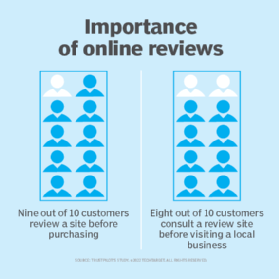
What is Online Reputation Management (ORM)
Online Reputation Management (ORM) is the process of monitoring and influencing how a business is perceived on the internet, with the aim of neutralizing negative sentiments and promoting positive ones[1]. ORM involves a variety of tactics, from content curation to building relationships with key influencers. The purpose of ORM is to create balance, counteract misleading trends, and allow a business to put its best foot forward[3]. ORM typically involves responding to bad reviews, suppressing unfavorable search results, and correcting misinformation about a business[1]. ORM overlaps with digital public relations (digital PR), but the emphasis is on defending a business’s reputation rather than proactively building a good brand image[1]. ORM is important because it helps ensure consumers view a business more favorably and are therefore more likely to engage with it[1].
Citations:
[1] https://www.semrush.com/blog/online-reputation-management/
[2] https://www.searchenginejournal.com/what-is-online-reputation-management-orm/473174/
[3] https://www.reputationdefender.com/what-online-reputation-management
[4] https://localsearchforum.com/threads/general-questions-about-online-reputation-management-for-clients.61058/
[5] https://www.business.com/articles/what-is-online-reputation-management/
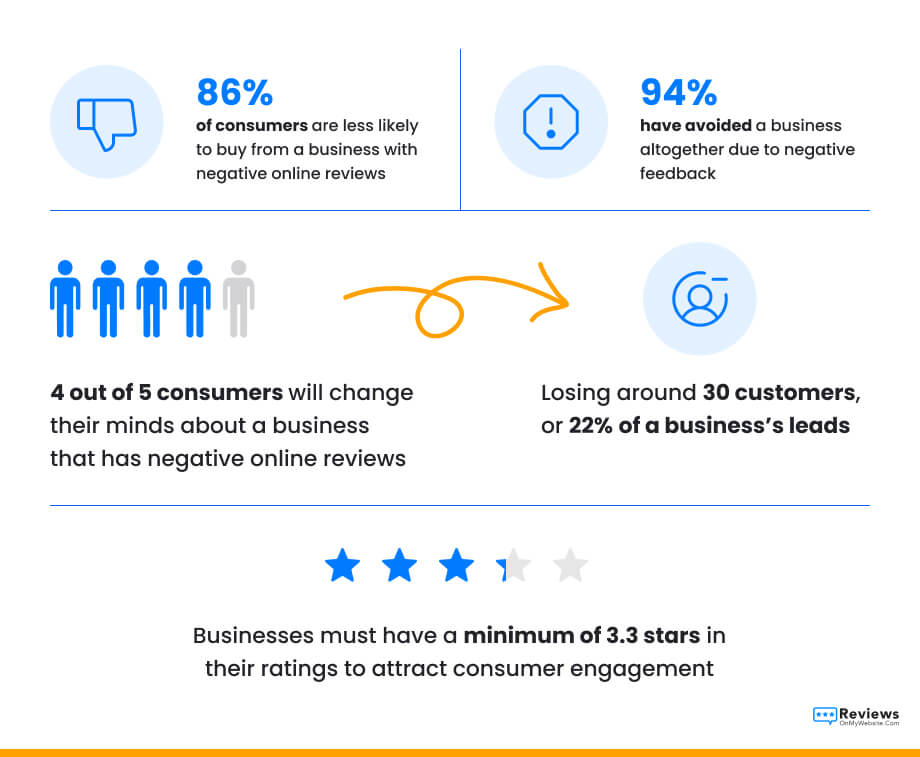
what are the benefits of online reputation management
Online Reputation Management (ORM) provides several benefits for individuals, organizations, and businesses, including:
1. Enhancing customer relationships by demonstrating responsiveness and care for customer feedback[1][2].
2. Safeguarding reputation against unfavorable comments or reviews[1].
3. Gaining a competitive advantage by attracting more customers and increasing market share[1].
4. Increasing brand awareness by enhancing online presence and attracting more visitors to websites[1].
5. Improving search engine rankings due to the significance of online reputation as a ranking factor[1][2].
6. Building trust and credibility among customers and stakeholders[1][2].
7. Attracting better employees by presenting a positive employer brand[2].
8. Reducing risks associated with a damaged reputation[2].
9. Encouraging gentler treatment during crises due to shared core values between the company and its customers[2].
10. Increasing conversions and sales by up to 270%, according to studies[3].
11. Managing unknown website listings and gaining control over online presence[3].
12. Creating loyal customers and turning them into brand advocates[3].
These benefits underscore the importance of ORM for maintaining a healthy and prosperous online presence.
Citations:
[1] https://www.questionpro.com/blog/benefits-of-online-reputation-management/
[2] https://blog.reputationx.com/benefits-of-reputation
[3] https://thriveagency.com/news/10-reasons-why-online-reputation-management-is-as-important-as-ever/
[4] https://www.linkedin.com/pulse/4-reasons-why-online-reputation-management-essential-your
[5] https://www.webdew.com/blog/benefits-of-online-reputation-management
How can online reputation management help individuals?
Online Reputation Management (ORM) can benefit individuals in several ways:
1. **Enhanced personal brand**: ORM helps establish a strong and positive online identity, allowing individuals to present themselves in the best light to potential employers, colleagues, and connections[4].
2. **Protection against defamatory content**: ORM monitors and addresses false or negative statements about an individual, helping to preserve their reputation and prevent further damage[1][4].
3. **Increased career opportunities**: A positive online reputation can increase chances of landing jobs and promotions, since hiring managers often conduct online searches to evaluate applicants[4].
4. **Improved networking**: Having a strong online presence facilitates networking and collaboration within professional circles, as peers are more inclined to connect with those whose reputations they respect[4].
5. **Better access to information**: Individuals with a robust online reputation are more likely to receive invitations to speak at events, contribute to articles, and participate in interviews, providing valuable learning and networking opportunities[4].
6. **Reduced vulnerability to cyberbullying and harassment**: ORM helps combat malicious behavior directed toward individuals, protecting their mental health and emotional wellbeing[4].
7. **Crisis management**: ORM equips individuals with skills to navigate difficult situations, ensuring that their reputations remain intact despite challenges[1].
By employing ORM techniques, individuals can gain control over their online identities, fostering stronger professional networks and opening doors to exciting opportunities.
Citations:
[1] https://www.questionpro.com/blog/benefits-of-online-reputation-management/
[2] https://www.verizon.com/about/blog/Importance-of-online-reputation-management
[3] https://www.linkedin.com/pulse/4-reasons-why-online-reputation-management-essential-your
[4] https://statuslabs.com/blog/reputation-management-tips-individuals
[5] https://blog.reputationx.com/benefits-of-reputation
what are some common mistakes to avoid in online reputation management?
Some common mistakes to avoid in Online Reputation Management (ORM) include:
1. **Letting Your Reputation Manage Itself**: Neglecting active involvement in managing your online reputation can lead to missed opportunities and potential damage to your brand[1].
2. **Staying Off Social Media**: Avoiding social media can hinder your ability to interact with your audience, address concerns, and showcase your brand values[1].
3. **DIY Online Reputation Management**: Attempting to manage your online reputation without professional expertise can result in mistakes, such as fake reviews or inconsistent strategies[1][2].
4. **Not Responding to Positive Reviews**: Ignoring positive feedback can miss opportunities to engage with satisfied customers and strengthen relationships[2].
5. **Being Inconsistent**: Inconsistency in managing your online reputation, such as varied responses to comments, can create confusion and affect how your brand is perceived[2].
6. **Posting Inappropriate or Offensive Content**: Sharing inappropriate content can harm your reputation and deter potential customers or employers[3].
7. **Engaging Online Trolls**: Responding negatively to online trolls can escalate conflicts and damage your online reputation by creating a permanent record of disputes[3].
By avoiding these common mistakes and implementing effective ORM strategies, individuals and businesses can maintain a positive online presence and build trust with their audience.
Citations:
[1] https://www.linkedin.com/pulse/10-online-reputation-management-mistakes-avoid-small-sharma
[2] https://advdms.com/blog/top-online-reputation-management-mistakes-that-you-should-avoid/
[3] https://www.reputationdefender.com/blog/orm/7-online-reputation-mistakes-you-might-be-making
[4] https://www.verizon.com/about/blog/Importance-of-online-reputation-management
[5] https://www.questionpro.com/blog/benefits-of-online-reputation-management/
how can online reputation management help with crisis management?
Online reputation management (ORM) plays a significant role in crisis management by helping to minimize the damage caused by negative incidents and preserving a brand’s reputation. To effectively utilize ORM during a crisis, follow these strategies:
1. Assess the Situation: Determine the nature, scale, and causes of the crisis[4].
2. Create a Crisis Response Team: Empower a group of professionals to manage the crisis[1].
3. Develop a Crisis Management Plan: Outline specific actions to be taken during a crisis[1].
4. Monitor and Engage with Online Reputation: Track conversations about the crisis across various platforms[3].
5. Be Transparent and Quick to Act: Address the crisis openly and promptly[1].
6. Apologize and Explain: Show remorse and provide details about the measures being taken to fix the issue[1].
7. Leverage Positive Content: Share success stories, testimonials, and updates to demonstrate the brand’s commitment to addressing the crisis[1].
8. Foster Open Dialogue: Encourage constructive discussions and feedback to show that the brand cares about its customers and stakeholders[1].
9. Learn and Improve: Evaluate the effectiveness of the crisis management efforts and incorporate improvements for the next time[4].
By following these strategies, brands can minimize the impact of a crisis and emerge stronger from challenging situations. Additionally, continuous monitoring and maintenance of a positive online reputation can help prevent crises from occurring in the first place[1].
Citations:
[1] https://konnectinsights.com/blogs/online-reputation-management-during-crisis/
[2] https://fastercapital.com/content/Crisis-Management–The-Key-to-Protecting-Your-Online-Reputation.html
[3] https://www.rockdovesolutions.com/blog/6-crisis-management-best-practices-for-a-flawless-online-reputation
[4] https://www.linkedin.com/advice/0/how-do-you-manage-online-reputation-crisis-skills-social-media
[5] https://rizereviews.com/reputation-management-vs-crisis-management-how-they-work-together/

what are some potential risks of not having an online reputation management strategy during a crisis
Not having an online reputation management (ORM) strategy during a crisis can lead to several detrimental outcomes:
1. Amplified damage to brand image: Without proper ORM, negative perceptions can grow exponentially, leading to severe damage to a brand’s reputation[5].
2. Loss of customer trust: Consumers rely heavily on online reviews and social media posts to form impressions of a brand. Failure to manage online reputation during a crisis can cause customers to lose faith in the organization[1].
3. Decrease in revenue: Poor online reputation can drive down sales, as customers may opt for competing brands instead[1].
4. Difficulty recruiting talent: Employees are increasingly aware of corporate reputations and may shy away from working for a company with a poor online profile[1].
5. Lower investor confidence: Investors tend to scrutinize a company’s online reputation closely, and failure to manage it properly could lead to reduced investment interest[1].
6. Ineffective crisis management: Lack of a structured ORM strategy makes it harder to contain and recover from a crisis, potentially resulting in prolonged damage to the brand’s reputation[1].
7. Missed opportunities for growth: Failing to manage online reputation during a crisis means missing out on opportunities to showcase the brand’s values, ethics, and reliability, which could otherwise foster greater trust and loyalty among stakeholders[1].
To mitigate these risks, it is essential to implement a comprehensive ORM strategy that includes regular monitoring, quick response, and ongoing improvement based on feedback and analysis[2].
Citations:
[1] https://konnectinsights.com/blogs/online-reputation-management-during-crisis/
[2] https://www.linkedin.com/advice/0/how-do-you-manage-online-reputation-crisis-skills-social-media
[3] https://fastercapital.com/content/Crisis-Management–The-Key-to-Protecting-Your-Online-Reputation.html
[4] https://www.jdsupra.com/legalnews/how-to-manage-an-online-reputation-9339881/
[5] https://fastercapital.com/topics/what-are-the-consequences-of-neglecting-online-reputation-management-for-a-business.html
how can a negative online reputation affect a company’s financial performance
A negative online reputation can significantly impact a company’s financial performance in several ways:
1. Reduced Sales: Negative reviews, comments, or news can lead to a decrease in sales as potential customers may choose to avoid the brand[1][5].
2. Decreased Customer Trust: A negative online reputation can erode customer trust, leading to a decline in customer loyalty and repeat business[1].
3. Difficulty Hiring: A poor online reputation can make it harder to attract and retain top talent, leading to increased hiring costs and reduced productivity[4].
4. Lowered Stock Prices: A negative online reputation can lead to a decrease in investor confidence, resulting in lower stock prices and reduced market value[1].
5. Increased Marketing Costs: Companies with a negative online reputation may need to spend more on marketing and advertising to counteract the negative perception[5].
6. Damage to Brand Equity: A negative online reputation can erode a brand’s equity and value, leading to long-term financial losses[5].
To mitigate these risks, companies should implement a comprehensive online reputation management strategy that includes regular monitoring, quick response, and ongoing improvement based on feedback and analysis[2]. By maintaining a positive online reputation, companies can build trust with their customers, attract top talent, and increase revenue and market value[4].
Citations:
[1] https://quietlight.com/how-your-businesss-online-reputation-can-impact-its-value/
[2] https://statuslabs.com/blog/what-is-reputational-risk-damage
[3] https://fastercapital.com/topics/what-are-the-consequences-of-neglecting-online-reputation-management-for-a-business.html
[4] https://blog.reputationx.com/benefits-of-reputation
[5] https://rizereviews.com/what-does-a-bad-online-reputation-cost-a-business/
Maintaining a Positive Online Reputation
To maintain a positive online reputation in the long term, businesses and individuals should prioritize consistent monitoring and management of online feedback and content. Regularly auditing search engine results, social media mentions, and online reviews can help identify potential issues before they escalate.
Utilizing social media as a tool for ORM is essential. By actively engaging with followers, sharing valuable content, and responding to comments and messages, businesses and individuals can build trust, loyalty, and a positive online presence.
Ultimately, proactive ORM strategies, combined with effective communication, transparency, and authenticity, can help businesses and individuals navigate the complex world of online reputation management successfully.
By mastering the art of ORM, brands and individuals can cultivate a strong online reputation that resonates with target audiences, enhances credibility and trust, and ultimately drives success in the digital realm.

